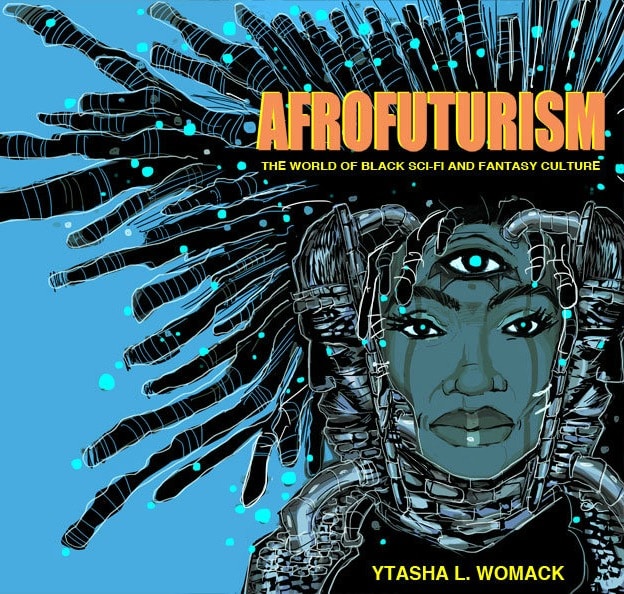As Afrofuturism continues to grow in popularity, one author from Chicago’s South Side is helping the movement take shape and offering a guide to sci-fi and fantasy newcomers.
For quite some time it seemed like the vast, imaginative worlds of sci-fi and fantasy arts had room for everything except for Black people.
Even today, as more comic book creators and sci-fi filmmakers make conscious efforts to boost diversity in their works, Black actors and characters often receive less than warm welcomes.
That’s where Afrofuturism comes in.
Afrofuturism is a term that describes the harmonious blend of science fiction and fantasy with aspects of Afrocentricity.
Afrofuturistic works not only aim to entertain, but they also hope to provide insightful critiques of racism and re-examine historical events.
While the term was not coined by Mark Dery until he published his essay “Black to the Future” in 1992, Chicago author Ytasha Womack was always living her life as a proud Afrofuturist.
The culture left such a substantial impact on the Chicago native that she began penning the book “Afrofuturism: The World of Black Sci-Fi and Fantasy Culture” after she graduated from Clark Atlanta University.
She graduated from the HBCU back in 1997, but it wasn’t until 2013 that Womack’s revolutionary book would hit the shelves.
The book was created as a bit of a launch pad for Blacks who were new to the sci-fi, fiction universe but always had an interest in it.
“A lot of my friends from college were really immersed in these ideas,” Womack said, according to DNA Info. “But when they graduated they didn’t know what to do.”
Womack hopes her book will help address that problem for many other Black people interested in sci-fi and fantasy works.
In addition to serving as a launch pad for Afrofuturism newcomers, the book will also aim to be a sort of history book for the sub culture.
Womack said she hopes the book is able to “preserve the movement for future generations,” DNA Info reported.
Since her book’s 2013 release, Womack says college students and professors have been constantly reaching out to her and now the book is being used to help educate students on a variety of topics including feminism and African diaspora.
The Afrofuturism book came after she wrote another book in 2010 titled “Post Black: How a New Generation Is Redefining African American Identity” and just before she released a fictional novel titled “Rayla 2212” in 2014.
The book follows the life of a woman named Rayla who lives on a former earth colony 200 years in the future.
“The idea [of Rayla] became really compelling when I was writing the Afrofuturism book,” Womack said.
Both of the works were contributing factors that helped inspire the Race in Space Conference at Duke University in October of 2013.
The conference combined science fiction with science fact and allowed seasoned researchers to give more insight about the possibilities of more advanced space exploration.
Afrofuturism has also been used to help get more Black students interested in science, technology, engineering and math (STEM) careers.




